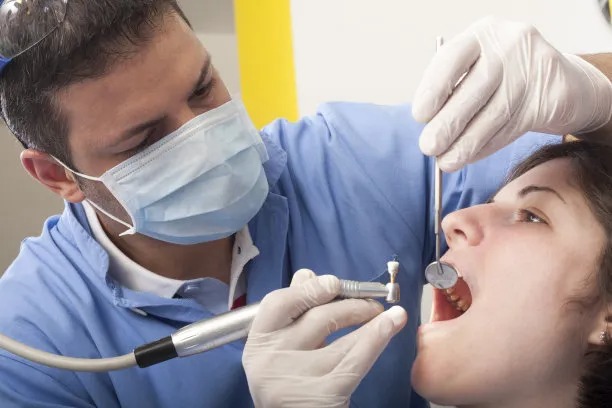Essential Precautions You Must Take Before Undergoing Root Canal Treatment to Ensure a Smooth Recovery Experience
Summary: Root canal treatment is a vital procedure to save a tooth that is affected by infection or decay. However, preparing properly before the procedure is crucial for ensuring a smooth recovery experience. This article outlines four essential precautions that patients should take: understanding what the procedure entails, arranging post-treatment care, adhering to dietary recommendations, and managing anxiety and expectations. By following these guidelines, patients can enhance their comfort and promote healing, making the overall experience more positive. Each point offers practical advice to facilitate a successful recovery and minimize complications.
1. Understand the Procedure Thoroughly

One of the most important steps before undergoing a root canal is to fully understand what the procedure involves. This includes familiarizing yourself with the steps the endodontist will take during the treatment. In essence, the dentist will remove the infected pulp from the tooth, clean the canal, and fill it with a material to prevent further infection. Doing research or asking your dentist questions can help alleviate fears associated with the unknown.
Knowing the potential duration of the procedure can also prepare you mentally. Typically, a root canal can take anywhere from one to two hours, depending on the complexity of the case. Being aware of this time frame helps patients manage their schedules more effectively and reduces anxiety on the treatment day.
Lastly, it can be beneficial to understand the aftercare involved. Proper knowledge of the recovery process helps set realistic expectations and prepares patients for any post-procedure sensations, such as discomfort or swelling.
2. Arrange for Proper Post-Treatment Care
Planning ahead for recovery can significantly impact your overall experience after a root canal. It’s advisable to arrange for someone to drive you home post-treatment, especially if you receive sedation. This precaution minimizes the risk of any accidents or discomfort during travel immediately following the procedure.
Moreover, it’s essential to have a relaxing space at home where you can rest after the treatment. Gathering supplies like soft foods, ice packs, and over-the-counter pain relief medication can make the recovery smoother. Creating a comfortable environment allows for adequate rest, which is vital for healing.
In addition, following your dentists aftercare instructions meticulously can prevent complications. This includes taking prescribed medications on time, attending follow-up visits, and avoiding hard foods until your tooth heals sufficiently.
3. Follow Dietary Recommendations Carefully
Diet plays a crucial role in recovery, especially after a root canal. Following the dietary recommendations given by your dentist can help avoid triggering any unnecessary pain or complications. Initially, it’s advisable to consume soft foods such as yogurt, applesauce, and mashed potatoes.
Avoid hot foods and beverages immediately after the procedure because the numbing agents used during treatment can hinder your ability to sense temperature, increasing the risk of burns. Additionally, steer clear of hard or chewy foods for a few days to prevent undue strain on the treated tooth, aiding a faster recovery process.
Finally, maintaining hydration is key. Drinking plenty of fluids can help wash away bacteria and promote healing throughout your body. However, it’s crucial to choose beverages wisely; avoid sugary drinks that can lead to further dental issues.
4. Manage Anxiety and Set Realistic Expectations
Managing anxiety is vital before undergoing a root canal. If you feel tense about the procedure, discussing your concerns with your dentist can provide reassurance. They may suggest relaxation techniques or even sedation options to help you feel more comfortable during the treatment.
Setting realistic expectations regarding discomfort levels is equally important. While some discomfort is normal post-treatment, severe pain is not, and any alarming symptoms should be communicated to your dental team. Understanding that recovery varies between individuals can help reduce any undue stress you might feel if your healing process differs from what you may have anticipated.
Moreover, it’s worthwhile to remember that undergoing a root canal not only treats pain but ultimately preserves your natural tooth, leading to long-term oral health. Keeping this positive outcome in mind can help mitigate anxieties.
Summary:
In conclusion, preparing adequately for a root canal treatment is essential for a successful recovery. Understanding the procedure, arranging for post-treatment care, following dietary restrictions, and managing anxiety will all contribute to a smoother healing process. Being well-prepared enhances your comfort during and after the procedure, ultimately making the experience less daunting and more effective.
This article is compiled by Vickong Dental and the content is for reference only.



